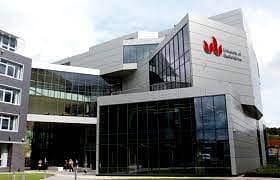This unique course – accredited to the British Psychological Society (BPS) - provides you with the knowledge and skills you need to go on to develop a successful career in the field of psychology.
You study the essential core topics of individual difference, developmental, social, cognitive and biological psychology. You need to have studied these areas to gain BPS Graduate Membership, the first step towards becoming a chartered psychologist specialising in a chosen area such as health, forensic, counselling, education or clinical.
Why choose this course?
- Study how psychology can be applied in daily life, in the specific areas of health, wellbeing and criminal behaviour
- Explore intellectual functions, the biological basis of behaviour and the effects of impairments on the mind
- Develop a deep understanding of the role learning and memory play in our everyday lives
- Focus in more detail on the specialist areas of health and forensic psychology
- Gain the skills and expertise necessary to use the qualitative and quantitative methodologies commonly used by professional psychologists
- Benefit from access to a wide range of departmental facilities, including expert advice and specialist software such as SPSS, ATLAS, EEG and driver simulators
Unit Information - What will I learn?
Units
- Advanced Research Methods (Applied Psychology) (PSY060-6) Compulsory
- Applied Psychology (PSY063-6) Compulsory
- Applied Psychology Dissertation Project (PSY064-6) Compulsory
- Biological And Neuropsychological Perspectives Of Behaviour (PSY061-6) Compulsory
- Cognition And Performance (PSY057-6) Compulsory
- Developmental Psychology (PSY058-6) Compulsory
- Personality, Intelligence And Assessments (PSY059-6) Compulsory
- Research Methods - Quantitative And Qualitative (PSY056-6) Compulsory
- Social Psychology (PSY062-6) Compulsory
How will I be assessed?
The course uses a variety of teaching methods to provide a curriculum based on the competencies that are required for psychologists and on the research and expertise of the staff. Methods include; simulations, computer-based activities, problem based learning, case studies and the virtual learning environment (VLE) known as BREO. The teaching activities are also dictated by the fact that this is a science-based course so students will have the opportunity to design and take part in research projects as part of both learning and assessment. In preparation for the dissertation they will learn about a range of research methods and advanced statistical analyses so that they are well prepared for the research project in which they generate research aims or hypotheses, conduct research, analyse the results and report them in the context of theory and current knowledge. The VLE provides a means of accessing sites elsewhere that illustrate various topics and that allow students to practice relevant skills.


